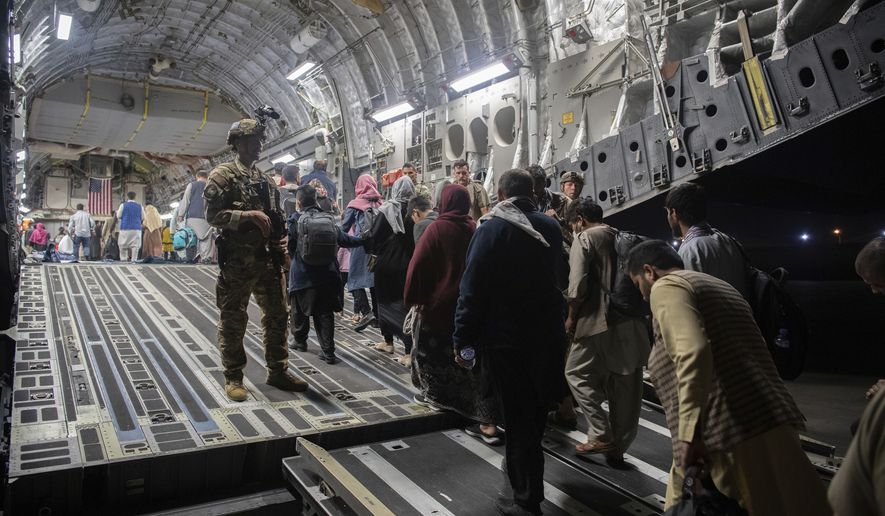Fewer than a dozen U.S. citizens who want to get out of Afghanistan and have all the paperwork are still stuck there, the State Department said Monday, suggesting it has whittled down a number that had been in the hundreds just a few weeks ago.
And more than 74,000 Afghan nationals airlifted out in the waning days of the U.S. war effort have now been relocated to America, with another 3,000 waiting in other countries overseas for their chance to enter.
The State Department, in an update on the situation, said the Biden administration has “surged resources” to try to help Americans and Afghans in the wake of the U.S. troop withdrawal in August, which ended America’s 20-year war effort.
In early September, the State Department indicated there were fewer than 100 Americans left behind. Two months later, officials said there were aware of 439 Americans still in Afghanistan, and 216 of those had said they wanted assistance in fleeing.
Biden administration officials said at the time that the rising number was a good thing, because it meant more people were feeling optimistic enough to come forward and ask for assistance.
But many questions remain.
Neither did it say how many Afghans stuck in the country have indicated they qualify for the special visa offered to those who assisted the U.S war effort.
Refugee groups say tens of thousands of other Afghans also are at risk of mistreatment at the hands of the new government or its proxies, and that the U.S. should be working to assist them.
They are limited by American bureaucracy and the capacity of charter flights out of Afghanistan.
The chaotic August evacuation saw 13 U.S. troops killed defending the Kabul airport, the last holdout of American troops in August, as the government collapsed and the Taliban retook control of the country.
During the chaos, the U.S. said it orchestrated an airlift that brought out more than 120,000 people. It later was revealed that many of those were Americans or citizens of allied nations. The actual total of Afghans evacuated appears to be lower than 80,000.
They were generally brought to sites in a third country where the names they gave were run through databases to try to spot any previous red flags or entanglements with U.S. agencies. But most were brought to the U.S. without the usual interview that would have been done for the special visa or for refugee status.
Homeland Security Secretary Alejandro Mayorkas admitted them using his special humanitarian parole powers.
They were supposed to go to tent cities set up at military bases where they were to remain while they got medical screenings and communities figured out who could handle them.
The State Department, in its update Monday, said about 34,000 people have already been resettled in new communities here.
The Republican National Committee complained about the lack of details, saying Mr. Biden missed a congressionally mandated deadline for informing Congress about who, exactly, was airlifted.
The RNC called the troop withdrawal “an unmitigated foreign policy disaster.”
• Stephen Dinan can be reached at sdinan@washingtontimes.com.




Please read our comment policy before commenting.